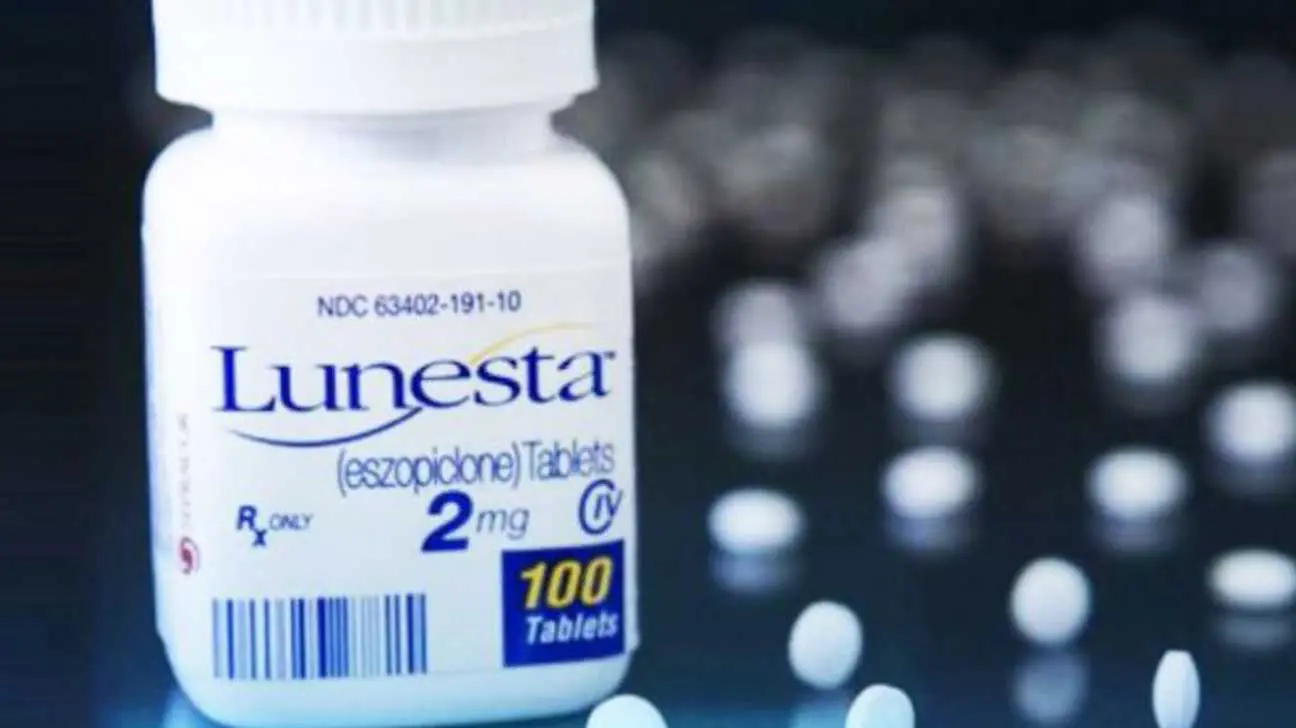
Lunesta (Eszopiclone) is the brand name of a non-benzodiazepine sedative-hypnotic used to treat insomnia.
While many people take the prescription drug orally, it may be abused recreationally by crushing the circular pills to snort (insufflate).
Recreational abuse of Lunesta can lead to dangerous adverse side effects, chemical dependency, addiction, and fatal overdose. Snorting prescription drugs is a sign of severe substance use disorder.
What Happens When You Snort Lunesta?
Lunesta is a powerful medication that causes sedation and drowsiness. It helps to slow down overactive brain activity. Other common sleeping pills are known as Ambien and Sonata.
People who abuse Lunesta through snorting seek its calming, sedation effects. They may purchase the medication illegally, or acquire the drug through getting multiple prescriptions.
When a person snorts Lunesta, the drug passes through highly vascularized tissue in the sinus cavity and throat.
This method of administration leads to higher levels of the drug in the bloodstream and faster effects. Lunesta may also be smoked or injected for abuse purposes.
Side Effects Of Snorting Lunesta
The dangers of snorting a prescription sleep aid medication like Lunesta are due to absorbing higher levels of the drug than safely prescribed for oral consumption by a physician.
Snorting this medication bypasses the digestive system and is quickly absorbed into the mucous membranes in the nostrils, throat, and upper respiratory system.
While snorting the medication produces instant effects, this is caused by absorbing high doses of the drug in a short amount of time. A person’s risk of overdose is greatly increased with this method of abuse.
When a person snorts Lunesta, side effects include damage to the nasal passageways, throat, and lungs.
Other side effects caused by snorting Lunesta:
- loss of sense of smell
- nosebleeds
- bone loss of the nasal cavity
- upper-respiratory infections
- lung infections and damage
- collapse of nasal passages
Lunesta Addiction
Lunesta works on the gamma-aminobutyric (GABA) levels in the brain by binding to GABA receptors, causing an increase of gamma-aminobutyric acid in the brain. The increase of GABA leads to drowsiness and sedation.
This medication has addictive properties which is why physicians prescribe the medication short-term, to allow an individual to gain effects from the drug without developing addiction.
People who abuse this medication often take high doses of the drug, and mix the drug with other substances. These behaviors often lead to the development of chemical dependency and addiction.
When a person becomes addicted to Lunesta, they may find it difficult to stop taking the drug, and fall asleep without it.
Once addiction has become established, withdrawal symptoms may appear when a person attempts to stop taking the medication.
Without substance abuse treatment, a person who has become addicted to Lunesta may find themselves unable to stop taking the medication without assistance from a qualified rehab center.
Lunesta Withdrawal
A person with a Lunesta addiction may experience severe withdrawal symptoms when attempting to stop taking Lunesta.
People who take high doses of Lunesta for a prolonged period of time may have extended withdrawal periods, as compared to people who use the medication at low doses and for shorter durations.
Common Lunesta withdrawal symptoms include:
- anxiety
- depression
- fatigue
- headache
- nausea
- nervousness
- vomiting
- insomnia
- sweating
- memory loss
- loss of concentration
Lunesta Overdose
Taking high doses of Lunesta, such as through snorting, can cause a fatal overdose. While symptoms of a Lunesta overdose may vary, the following symptoms are signs that a person requires emergency medical attention.
Symptoms of Lunesta overdose include:
- severe drowsiness
- fainting
- lack of responsiveness
- difficulty breathing
- coma
When Lunesta is mixed with other central nervous system depressants, the drug’s sedative effects are amplified.
Consuming Lunesta with alcohol or other CNS depressants may increase the drug’s side effects and may lead to overdose.
Getting Help For Lunesta Addiction
When Lunesta is prescribed by a qualified physician, and for short-term use, the medication safely treats symptoms of sleep disorder.
However long-term use of Lunesta at high doses can lead to several health risks.
Addiction and chemical dependency may develop after abusing Lunesta. Further, snorting Lunesta may increase a person’s risk of health damage to the nasal cavities and upper respiratory system and other health issues.
People who have become chemically addicted to this prescription medication should seek addiction treatment and medical advice immediately to avoid adverse side effects and overdose.
Several available inpatient and outpatient drug treatment programs are designed to assist a person as they detox and experience withdrawal symptoms associated with Lunesta abuse.
If you or a loved one have a Lunesta addiction, or if you have any questions about our substance abuse treatment centers, please connect with one of our treatment specialists through our helpline today.
Addiction Resource aims to provide only the most current, accurate information in regards to addiction and addiction treatment, which means we only reference the most credible sources available.
These include peer-reviewed journals, government entities and academic institutions, and leaders in addiction healthcare and advocacy. Learn more about how we safeguard our content by viewing our editorial policy.
- National Center for Biotechnology Information — Eszopiclone (Lunesta): a new nonbenzodiazepine hypnotic agent
https://www.ncbi.nlm.nih.gov/pmc/articles/PMC6492503/ - National Center for Biotechnology Information — Prescription Sedative Misuse and Abuse
https://www.ncbi.nlm.nih.gov/pmc/articles/PMC4553644/ - National Center for Biotechnology Information — The Clinical and Forensic Toxicology of Z-drugs
https://www.ncbi.nlm.nih.gov/pmc/articles/PMC3657020/


